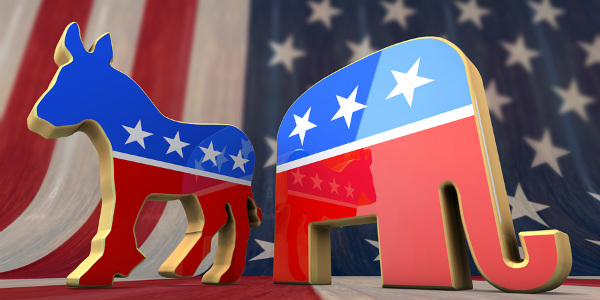Partisanship is so 2013

For the first time in months, perhaps even years I believe there may be a glimmer of light at the end of the partisanship tunnel. Of course, as a political pundit in this climate, it is much safer to remain pessimistic since the odds are better that history will prove you correct. However, as a lifelong moderate Democrat, the latest primary elections provide a ray of hope that perhaps that extremists are losing stream.
An interesting example was the Democratic primary for Pennsylvania’s 13th district that was won by Brendan Boyle who is considered to be a moderate. He defeated Marjorie Margolies, who is a progressive with strong support from the Clinton dynasty. On the other side of the aisle in Kentucky, Idaho, Georgia and Pennsylvania the Tea Party lost what were considered to be key Republican primaries. This is in stark contrast to the last two election cycles where it seemed that Tea Party candidates were popping up and winning primaries at-will, and making serious headlines all while.
Democrats will likely see this as a setback politically. It is more difficult for them to set themselves apart from a more mainstream Republican candidate and therefore they will have a harder time orchestrating an upset in more conservative states/districts. This certainly seems to be the case in Georgia where Democratic primary winner Michelle Nunn would have preferred a Tea Party opponent but will not have the chance as the Republican primary produced a runoff between two strong, electable, candidates.
In some ways the Tea Party’s trajectory reminds me of the rise and fall of Democrat George Mcgovern and the “Mcgovernites” in the early 1970’s. Mcgovern and his backers began to sway the party to the far left and after securing the 1972 presidential nomination he was destroyed by Nixon in the general election and only won a single state. Since then Mcgovernism lost favor among mainstream Democrats.
In my view removing extremes on either side of the aisle is good news for the country. The idea of being fully and publicly against compromise, as many of extremists are, is fundamentally contrary to what makes our legislative system one of the most powerful and effective in the history of modern civilization. And I believe that we should see this as good for credit unions as well. This is particularly true since primary Tuesday was a great day for credit union backed candidates. As usual our friends at CUNA were working behind the scenes and supported successful candidates around the country that understand the important role that credit unions play in consumer financial services. From Mitch McConnell (R) in Kentucky to Hank Johnson (D) in Georgia credit union grassroots political activities are breeding success.
All this I say fully realizing that on a philosophical level there are many in the credit union movement that may align themselves the Tea Party principles. Regardless of party affiliation or political views, there can be no denying that that partisan gridlock we have been experiencing in recent years is not positive for our industry or the country at-large. We should look at these primaries as a positive move in the direction of productive and effective governance. We can remember that the way to support the Democratic principles of liberty, equality, and justice is not through headline grabbing rhetoric but through sending lawmakers to Washington who are willing to cooperate, compromise, and find real solutions to problems facing our nation.





